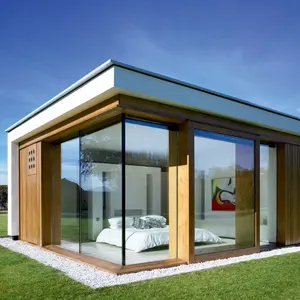
Container House Prefab Houses Low Cost Prefab Prefabricated Modular Flat Pack Container Office House


Zhejiang University Container Room Prefab Home Prefabricated House Modular Building ADU Hotel Art Design Structured Project























The concept of container room hotels has emerged as an innovative solution in the realm of modular accommodation. These structures, crafted from repurposed shipping containers, offer a unique blend of functionality and design. Predominantly constructed from durable steel, these container hotels are gaining traction among eco-conscious travelers and businesses looking for sustainable lodging options.
Container hotels come in various configurations, from single units to multi-story complexes. The adaptability of these units allows for a range of customizations, catering to different needs such as temporary housing, emergency shelters, or permanent hotel structures. The interior can be outfitted with a variety of materials, including but not limited to, insulation panels, wood, or modern composites, ensuring comfort and aesthetic appeal.
The functionality of a container hotel extends beyond its compact size. These units often include eco-friendly features such as solar panels and rainwater harvesting systems. The inherent mobility of container hotels provides a unique advantage, allowing them to be transported and installed in diverse locations with relative ease. This feature is particularly beneficial for businesses looking to expand their presence in remote or underdeveloped areas without the need for extensive construction.
Modular container hotels are not limited to leisure travel; they serve various applications including but not limited to, workforce housing in remote areas, pop-up event accommodations, and disaster relief housing. Their versatility also allows for their use in urban settings, where they can be stacked or combined to create larger complexes, making efficient use of limited space.
One of the primary advantages of prefabricated container hotels is the speed of deployment. Unlike traditional construction, these units can be manufactured off-site and assembled on location, significantly reducing the project timeline. Additionally, the use of containers often results in a lower carbon footprint compared to conventional building methods, aligning with global sustainability goals.
In summary, container room hotels represent a flexible and sustainable option in the hospitality industry. Their unique combination of durability, adaptability, and eco-friendliness makes them an attractive choice for businesses and travelers alike. As the demand for innovative and sustainable lodging solutions grows, container hotels stand out as a practical and responsible choice.